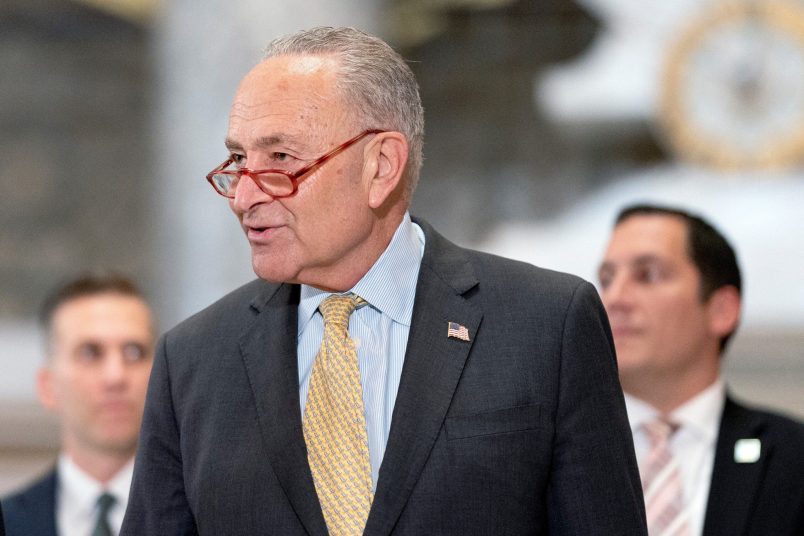Senate Majority Leader Chuck Schumer (D-NY) said Monday morning that Democrats will use this week to launch a counteroffensive after House Republicans passed their debt ceiling bill last week.
The House is in recess until May 9.
“Beginning this week, our Committees will begin to hold hearings to expose the true impact of this reckless legislation on everyday Americans,” Schumer wrote in a Dear Colleague letter. “On Thursday, the Budget Committee will hold a hearing on the Default on America Act,” he added, giving the legislation his own nickname.
Witnesses at the Thursday Senate Budget meeting will include Mark Zandi, chief economist at Moody’s Analytics — a notable invite, given that Zandi and colleagues released an analysis last week finding that the House Republican bill “would meaningfully increase the likelihood” of a recession, and that it would result in 780,000 fewer jobs and an unemployment rate .36 percent higher by the end of 2024 as compared to a clean debt limit scenario. (Those calculations looked at Republicans’ policy proposals, without significantly taking into account the far greater economic shocks that would come along with a possible U.S. default.)
Republicans dominated coverage last week, as House Speaker Kevin McCarthy (R-CA) struggled to lasso his members to support even this bill, a far-right wishlist which didn’t need to be watered down or moderated at all since it was never meant to survive the Senate. Instead, it better enables McCarthy to accuse Democrats of being unwilling to negotiate (e.g. fork over political concessions to Republicans), while Republicans are doing the “responsible” thing and lifting the limit.
“Let’s be perfectly clear: The Republican Default on America Act does nothing to actually resolve the looming debt crisis, and it has no hope of ever becoming law,” Schumer wrote. “If anything, the MAGA House Republicans’ actions have increased the likelihood of default.”
McCarthy disingenuously insists that the bill is a good-faith opening bid, though it’s actually full of poison pills for Democrats, including repealing large swaths of the Inflation Reduction Act and making it harder for lower-income people to get food and health care. Senate Democrats scoffed at the notion that the bill was anything more than a piece of messaging.
Since the beginning, Democrats have insisted that they won’t haggle over the debt ceiling, but want to pass a clean hike or suspension and then fight over spending when it comes time to pass the budget. Republicans are loath to let the opportunity pass without playing an extraordinarily dangerous game of chicken that they’re betting will get them some policy concessions and place the blame for the dysfunction on the White House.
The “x-date,” or day when the Treasury Department will run out of creative ways to pay the country’s debts, is looming. That same Moody’s Analytics analysis found that “with April tax receipts coming in weaker than expected,” the x-date may come as early as June.



